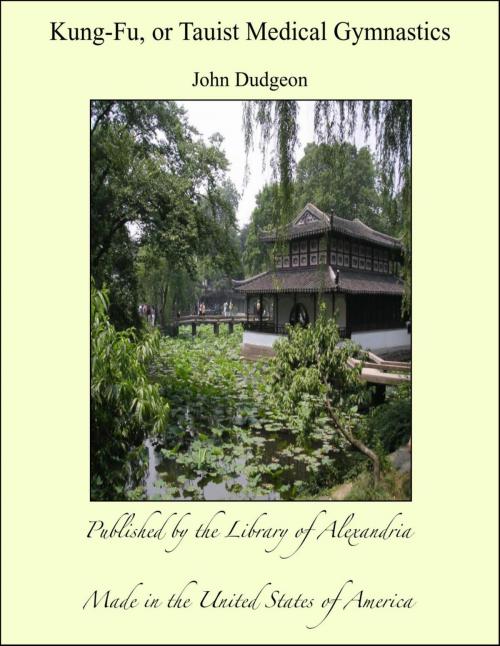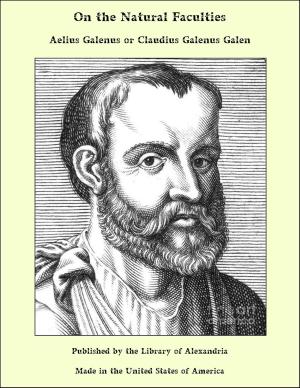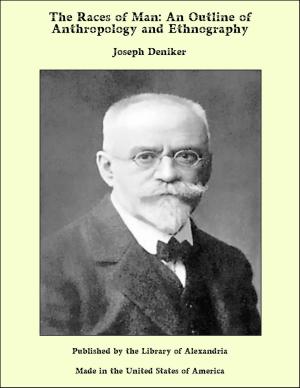Kung-Fu, or Tauist Medical Gymnastics
Nonfiction, Religion & Spirituality, New Age, History, Fiction & Literature| Author: | John Dudgeon | ISBN: | 9781465577412 |
| Publisher: | Library of Alexandria | Publication: | March 8, 2015 |
| Imprint: | Language: | English |
| Author: | John Dudgeon |
| ISBN: | 9781465577412 |
| Publisher: | Library of Alexandria |
| Publication: | March 8, 2015 |
| Imprint: | |
| Language: | English |
Movements for the development of the body and for the prevention and cure of disease were known and practised in the most ancient times in all countries. We find gymnastic exercises forming a part of the religion of the ancients. The great heroes of antiquity either instituted, restored, or took part in them. Poets made them the theme of their verses; and so, by immortalizing not only themselves but their victors whose fame they celebrated, they animated the Greek and Roman youth to tread in similar steps. Such exercises were then indispensable, the use of fire-arms being at that time unknown. The body required to be strengthened, and health to be confirmed and inured to fatigue. Contests were generally decided in close fight, by strength of body. Hence the origin of gymnasia, where the science of movement, as it were, was taught, and which were always dedicated to Apollo, the god of physicians. The Greeks owed much of their mental greatness to these exercises. They formed one of the three great parts into which all education was divided, and this branch was the more important in that it did not cease at a certain period but was continued through life. The Greek effort in education seems to have been directed to the attainment of a sound mind in a sound body, and it was on this account that their physicians and philosophers placed well-regulated exercises as of first importance. We know that the officers of these institutions were recognised as physicians. Exercises of all kinds, such as walking, dry-rubbing or friction, wrestling, etc., were a few of the common aids of physic, as they were termed by Asclepiades, who did so much to bring them into repute. The term athletae might most appropriately be applied to the Chinese Tauist priests, the Greek word athlos, from which it is derived, being similar in meaning to kung fu. In other respects, however, they resemble more closely the Agonistae, who followed gymnastics solely with the view of improving their health and strength; and who, although they sometimes contended in the public games, did not devote their whole lives, like the Athletae, to preparing for these contests.
Movements for the development of the body and for the prevention and cure of disease were known and practised in the most ancient times in all countries. We find gymnastic exercises forming a part of the religion of the ancients. The great heroes of antiquity either instituted, restored, or took part in them. Poets made them the theme of their verses; and so, by immortalizing not only themselves but their victors whose fame they celebrated, they animated the Greek and Roman youth to tread in similar steps. Such exercises were then indispensable, the use of fire-arms being at that time unknown. The body required to be strengthened, and health to be confirmed and inured to fatigue. Contests were generally decided in close fight, by strength of body. Hence the origin of gymnasia, where the science of movement, as it were, was taught, and which were always dedicated to Apollo, the god of physicians. The Greeks owed much of their mental greatness to these exercises. They formed one of the three great parts into which all education was divided, and this branch was the more important in that it did not cease at a certain period but was continued through life. The Greek effort in education seems to have been directed to the attainment of a sound mind in a sound body, and it was on this account that their physicians and philosophers placed well-regulated exercises as of first importance. We know that the officers of these institutions were recognised as physicians. Exercises of all kinds, such as walking, dry-rubbing or friction, wrestling, etc., were a few of the common aids of physic, as they were termed by Asclepiades, who did so much to bring them into repute. The term athletae might most appropriately be applied to the Chinese Tauist priests, the Greek word athlos, from which it is derived, being similar in meaning to kung fu. In other respects, however, they resemble more closely the Agonistae, who followed gymnastics solely with the view of improving their health and strength; and who, although they sometimes contended in the public games, did not devote their whole lives, like the Athletae, to preparing for these contests.















